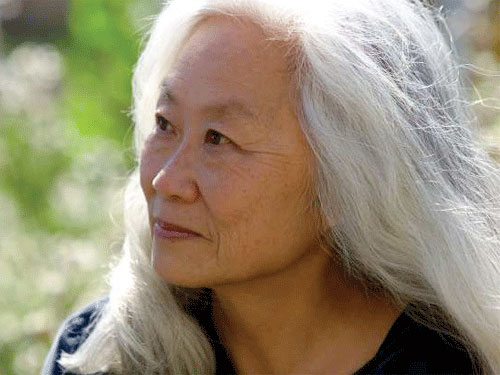News
I quite enjoyed this post by Pico Iyer, in which he writes about his journey to a simpler life, a life of contentment.
I had been lucky enough at that point to stumble into the life I might have dreamed of as a boy: a great job writing on world affairs for Time magazine, an apartment (officially at least) on Park Avenue, enough time and money to take vacations in Burma, Morocco, El Salvador. But every time I went to one of those places, I noticed that the people I met there, mired in difficulty and often warfare, seemed to have more energy and even optimism than the friends I’d grown up with in privileged, peaceful Santa Barbara, Calif., many of whom were on their fourth marriages and seeing a therapist every day. Though I knew that poverty certainly didn’t buy happiness, I wasn’t convinced that money did either.
So — as post-1960s cliché decreed — I left my comfortable job and life to live for a year in a temple on the backstreets of Kyoto. My high-minded year lasted all of a week, by which time I’d noticed that the depthless contemplation of the moon and composition of haiku I’d imagined from afar was really more a matter of cleaning, sweeping and then cleaning some more. But today, more than 21 years later, I still live in the vicinity of Kyoto, in a two-room apartment that makes my old monastic cell look almost luxurious by comparison. I have no bicycle, no car, no television I can understand, no media — and the days seem to stretch into eternities, and I can’t think of a single thing I lack.
You can read his entire piece here.
Gaiutra Bahadur reviewed my novel, Secret Son, for the New York Times this weekend. The paper ran a long excerpt from the first chapter. There are also reviews in the Brooklyn Rail (by Paul Charles Griffin) and in the summer issue of the Harvard Review (by Laura Albritton).
While I was in New York last month, I did an interview with Ed Champion for The Bat Segundo Show; that podcast is now available here.

Years ago, when I was an undergraduate student at Mohamed-V university, I was assigned Maxine Hong Kingston’s The Woman Warrior. I remember very clearly reading that stunning first line (“You must not tell anyone,” my mother said, “what I am about to tell you.”) and not being able to put down the book after that, despite having to reach for the dictionary so many times. That book resonated deeply with me for reasons that really didn’t become clear to me until a long time later. Yesterday, in my introduction to creative writing class at UC Riverside, my students and I discussed the opening chapter, “No-Name Woman.” This is how it closes:
The real punishment was not the raid swiftly inflicted by the villagers, but the family’s deliberately forgetting her. Her betrayal so maddened them, they saw to it that she would suffer forever, even after death. Always hungry, always needing, she would have to beg food from other ghosts, snatch and steal it from those whose living descendants give them gifts. She would have to fight the ghosts massed at crossroads for the buns a few thoughtful citizens leave to decoy her away from village and home so that the ancestral spirits could feast unharassed. At peace, they could act like gods, not ghosts, their descent lines providing them with paper suits and dresses, spirit money, paper houses, paper automobiles, chicken, meat, and rice into eternity essences delivered up in smoke and flames, steam and incense rising from each rice bowl. In an attempt to make the Chinese care for people outside the family, Chairman Mao encourages us now to give our paper replicas to the spirits of outstanding soldiers and workers, no matter whose ancestors they may be. My aunt remains forever hungry. Goods are not distributed evenly among the dead.
My aunt haunts me-her ghost drawn to me because now, after fifty years of neglect, I alone devote pages of paper to her, though not origamied into houses and clothes. I do not think she always means me well. I am telling on her, and she was a spite suicide, drowning herself in the drinking water. The Chinese are always very frightened of the drowned one, whose weeping ghost, wet hair hanging and skin bloated, waits silently by the water to pull down a substitute.
It was a useful chapter for our discussion of truth, whether in fiction or nonfiction.
Pakistani writers Daniyal Mueenuddin (author of the story collection In Other Rooms, Other Wonders) and Kamila Shamsie (author of, most recently, the novel Burnt Shadows) are the subject of a short piece by Rob Gifford at NPR. Take a listen.
Guess what? The Israeli police shut down the Palestinian Literature Festival again. This time, armed police showed up at the closing event, which was due to take place in the National Theater in Jerusalem. Fortunately, the director of the British Council stepped in and offered an auditorium for the panelists and audience. An Israeli friend tells me that this story has been under-reported in his country. Unsurprisingly, it’s been under-reported here, too.
